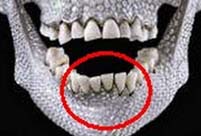 Amazing cliff diving in cold winter
Amazing cliff diving in cold winter
 Enjoy Sochi 2014 in slow motion
Enjoy Sochi 2014 in slow motion
 University student sentenced to death for poisoning roommate
University student sentenced to death for poisoning roommate
 Chinese lunar New Year celebrated in San Francisco
Chinese lunar New Year celebrated in San Francisco
 Taiwan Lantern Festival 2014
Taiwan Lantern Festival 2014
 Haiyang Yangge: make up
Haiyang Yangge: make up
 China's top 10 richest cities
China's top 10 richest cities
 President Xi visits garrison troops in Inner Mongolia
President Xi visits garrison troops in Inner Mongolia
 Turnip sculptures amaze tourists in Qingdao
Turnip sculptures amaze tourists in QingdaoBEIJING, Feb. 21 -- Senior economists have argued against reading too much into China reducing its holdings of U.S. treasury bonds in December with its biggest monthly cut in two years.
China, the largest holder of U.S. treasury bonds, slashed its holdings by 47.8 billion U.S. dollars in the final month of 2013, statistics from the U.S. Department of the Treasury showed on Tuesday.
The cut came abruptly after the country's continued raising of holdings of the bonds for three consecutive months from September to November last year.
However, on a year-on-year basis, China's holdings of U.S. T-bonds rose about 4 percent by the end of last year to 1.27 trillion U.S. dollars, maintaining its position as the largest foreign creditor the United States.
And experts warned against hyping the temporary drop in December, forecasting that China's holdings will remain steady in the next few years due to its enormous foreign reserve stockpile and the quality of dollar assets.
The cut is just an investment adjustment in line with domestic situations and the international economic environment and is within a rational scale of fluctuation, said Tan Yaling, president of the China Forex Investment Research Institute.
"There is no need to make a fuss about it, as either a rise or a fall in a country's holdings is normal market operations," Tan said.
As the U.S. Federal Reserve's decision to taper its quantitative easing last December brought an upbeat note to investors, the yield of its 10-year treasury bonds surged to 3 percent, the highest since July 2011.
The high yield dragged down bond prices and sapped the value of China's holdings.
However, Tan argued that China's persistent holding of a large amount of U.S. T-bonds is a sensible choice, as the bonds stand out among limited investment choices due to their relatively low risks and stable returns.
China's foreign exchange reserves reached 3.82 trillion U.S. dollars by the end of 2013. This means that China put about a third of its reserve stockpile in U.S. T-bonds.
The amount of reserves is expected to further increase as China faces surpluses in both the current account and capital account, said Asian Development Bank economist Zhuang Jian.
As the reserves rise, China's investment into U.S. treasury bonds is not likely to fall in the next few years, Zhuang said.
Guo Tianyong, a professor at China's Central University of Finance and Economics, pointed out that there are risks in having too big a share in U.S. T-bonds.
"Due to the U.S. quantitative easing in recent years, the value of China's dollar assets were in effect diluted, and the yield was not that high with the depreciation of the U.S. dollar," according to Guo.
To better manage the investment of foreign reserves, China should diversify its investment portfolio to wean itself off over-reliance on dollar-based assets, he said.
Meanwhile, the growing forex deposit should be further tapped to benefit domestic economic development by encouraging firms and institutions to hold more foreign exchange, Guo added.
His views were echoed by Tan, who said that the enormous stockpile must be tamed to serve China's real economy, instead of being a burden for investment.
Zhuang suggested that China diversify the use of foreign reserves by further encouraging companies to compete in the global marketplace, expanding channels for corporate and personal uses, and importing resource-related products and technologies.
The country should also seek balance in both its current account and capital account to relieve the appreciation pressure for the yuan and curb the rapid expansion of foreign reserves.
 Most gorgeous female celebs in Chi-pao
Most gorgeous female celebs in Chi-pao Second round of test kicks off at Beijing Film Academy
Second round of test kicks off at Beijing Film Academy Ancient Qiang people had vertically grown teeth
Ancient Qiang people had vertically grown teeth Top 10 Chinese youth’s favorite seaside destinations
Top 10 Chinese youth’s favorite seaside destinations Traditional Tibetan clothing tailors
Traditional Tibetan clothing tailors In photos: Unveiling Taishan station
In photos: Unveiling Taishan station Beautiful moments of family reunion
Beautiful moments of family reunion 10 Valentine's Day ideas for couples
10 Valentine's Day ideas for couples Let's get married today!
Let's get married today! Chinese warplanes C919 to appear at Singapore Airshow 2014
Chinese warplanes C919 to appear at Singapore Airshow 2014 Ruins of Shang Dynasty's structure unearthed in Shaanxi
Ruins of Shang Dynasty's structure unearthed in Shaanxi  Intercity high speed train in operation
Intercity high speed train in operation Severe coldness freezes large parts of China
Severe coldness freezes large parts of China  Beautiful moments of Sochi
Beautiful moments of Sochi  It's not just performing this year
It's not just performing this yearDay|Week|Month